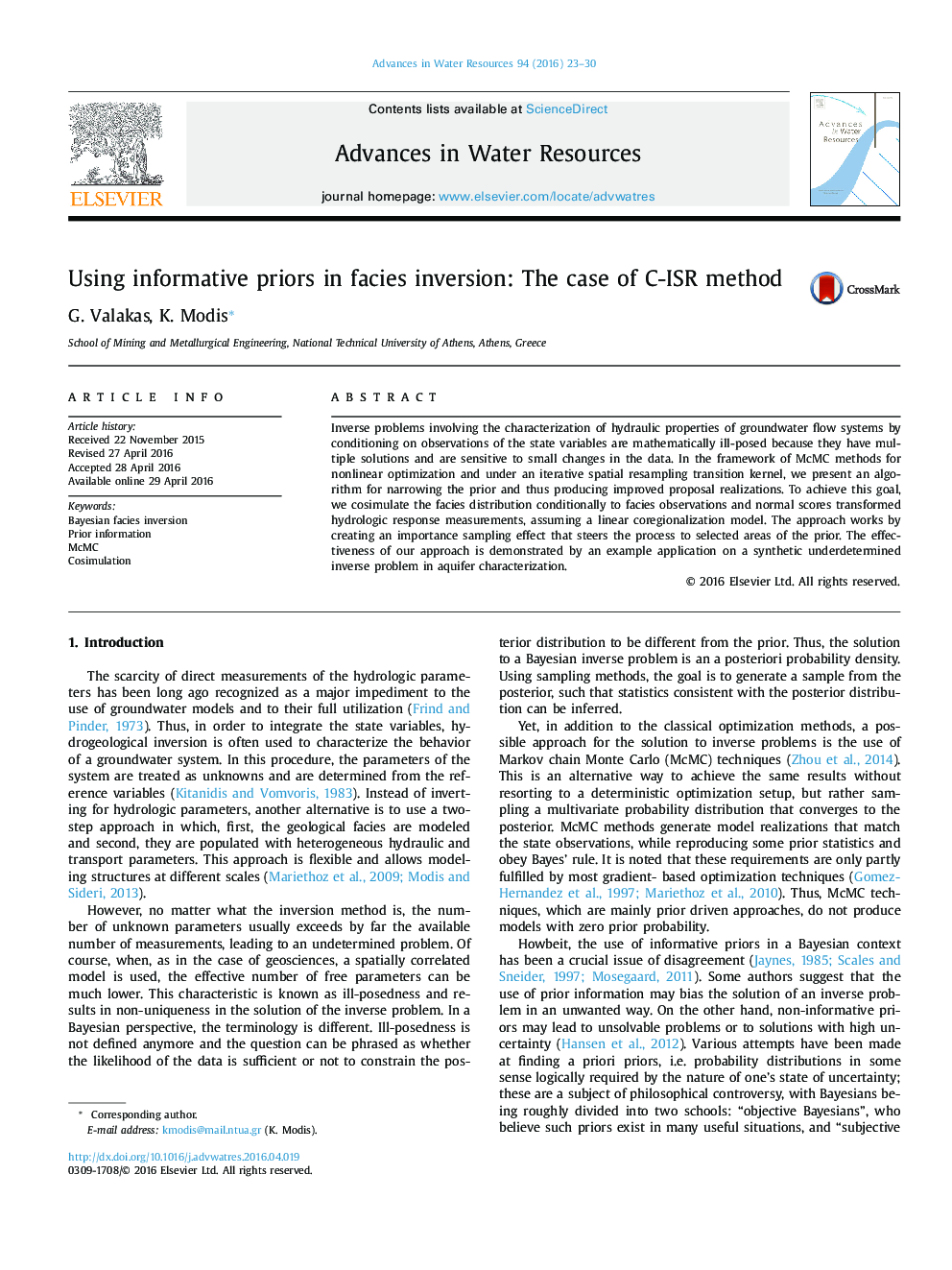| Article ID | Journal | Published Year | Pages | File Type |
|---|---|---|---|---|
| 6380706 | Advances in Water Resources | 2016 | 8 Pages |
â¢An extension of Iterative Spatial Resampling is proposed for Bayesian inversion.â¢C-ISR works by narrowing the prior and producing improved proposal realizations.â¢The mechanism relies on cosimulation of system parameters with the state variables.â¢A linear coregionalization model is assumed.
Inverse problems involving the characterization of hydraulic properties of groundwater flow systems by conditioning on observations of the state variables are mathematically ill-posed because they have multiple solutions and are sensitive to small changes in the data. In the framework of McMC methods for nonlinear optimization and under an iterative spatial resampling transition kernel, we present an algorithm for narrowing the prior and thus producing improved proposal realizations. To achieve this goal, we cosimulate the facies distribution conditionally to facies observations and normal scores transformed hydrologic response measurements, assuming a linear coregionalization model. The approach works by creating an importance sampling effect that steers the process to selected areas of the prior. The effectiveness of our approach is demonstrated by an example application on a synthetic underdetermined inverse problem in aquifer characterization.
